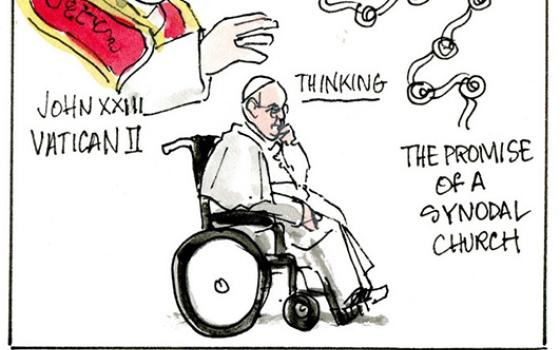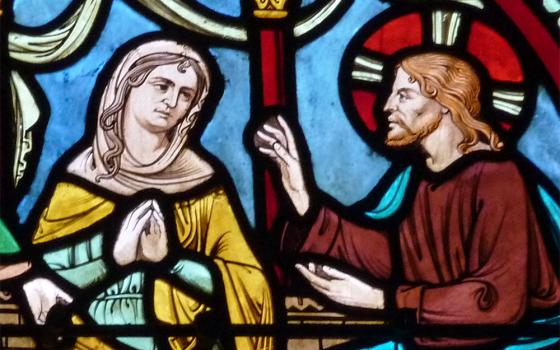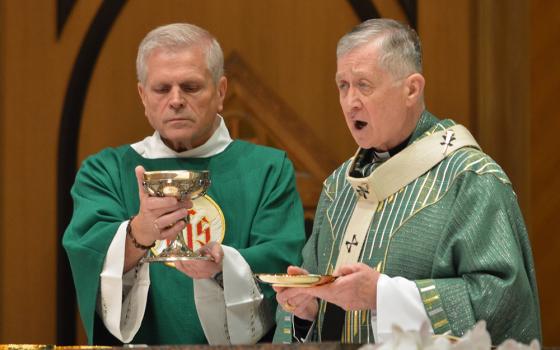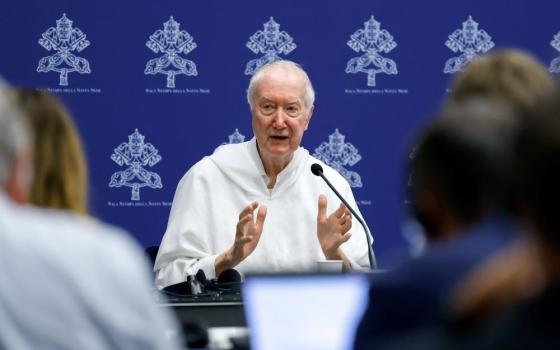
(Dreamstime/Andrii Yalanskyi)
The prebuttals have begun. With last month's release of the instrumentum laboris, or working document, for the October synod in Rome, and the announcement of synod members this morning, most people with whom I speak are enthusiastic about the synodal process. But those who thought the long reign of John Paul II had settled all issues within the church, and settled them for all time, those people are anxious. They are now trying to throw whatever sand into the mechanisms, hurl allegations of hidden agendas and generally aim to make sure that the synodal process is stillborn.
In the pages of First Things, George Weigel charges that the synod of 2023 is "reversing Vatican II." After a fine summation of some of the Christocentric imagery for the church that the 1962-65 Second Vatican Council employed, and that has governed the reception of the council since, Weigel opines: "Vatican II's richly biblical, Christocentric theology of the Church is notably absent from the Working Document (the Instrumentum Laboris, or IL) for the Synod on Synodality, which will meet in Rome in October."
The adjective is wrong. The Christocentric theology of Vatican II is not "absent" so much as it is assumed. This is a working document, not an exhortation. It joins a conversation already in progress, at 40 miles an hour. It did not need to rehash what is known and shared already.
Advertisement
The conversation a doctor has with a patient differs from the conversation she has with other doctors, or with nurses. This working document is more like the latter than the former.
It is true that the role of the Holy Spirit is far more pronounced in the synodal working paper than it was in the documents of Vatican II. But, as Richard Gaillardetz explained in his chapter on ecclesiology in the recently published Oxford Handbook of Vatican II, there was more pneumatology in the documents of the council than it seems at first blush, because the Spirit is the Spirit of Christ, not some other reality.
Weigel is not wrong to consider the danger of the synodal discussions becoming self-referential, but reading the instrumentum laboris, I thought the inclusion of mission among the three essential characteristics of a synodal church hedges against the discussion becoming too self-referential.
Besides, as we continue to experience the painful reckoning of the clergy sex abuse crisis, examining the structures of the church that allowed that crisis to fester and avoid treatment for so many years is a clamant need. If I were Weigel, I would want to ignore that ugly, recent history too: His hero, Pope John Paul II, so heroic in other ways, was no hero on the subject of clergy sex abuse.
This is a working document, not an exhortation. It joins a conversation already in progress, at 40 miles an hour. It did not need to rehash what is known and shared already.
Fr. Raymond de Souza also took to the pages of First Things to vent his concerns about the instrumentum laboris and synodal process more generally. He frets that the synodal process is verbose, that it refutes Evangelii Gaudium's missionary focus by turning inward to specifically ecclesiological concerns, that it misreads Scripture, that it is no more than "a discussion about discussions."
He implies there is a secret agenda at work, as if the working document did not accurately reflect the issues raised in what might be the widest consultation of human persons in the history of the human race. He did not allege synodality's responsibility for cancer, but he offers not a single redeeming thought for this process.
One of the most revealing criticisms de Souza levels is that the instrumentum laboris has a "worldly spirit." He writes:
Indeed, the "worldliness" that the Holy Father frequently condemns prevails throughout the IL. Its initial survey of issues could have been produced by any U.N. agency: "too many wars that stain our world with blood leading to a call for a renewed commitment to building a just peace, the threat represented by climate change that implies a necessary priority of caring for the common home, the cry to oppose an economic system that produces exploitation, inequality and a throwaway culture, and the desire to resist the homogenising pressure of cultural colonialism that crushes minorities."
This shows gross ignorance or misunderstanding. Pope John XXIII had lived through two world wars and recognized that professed Christians acted no differently from anyone else. Pope Paul VI, in opening the second session of Vatican II, stated that principal task of the council was to examine its conscience: "It is the conscience of the Church that is clarified by adherence to the words and thought of Christ ... by docility to the inner illumination of the Holy Spirit, which calls upon the Church today to, as much as possible, recognize its truest self."
That conscience was disturbed by the atrocities of war in the first half of the century, and by the prospect of nuclear war. De Souza is too smart not to know this, and how challenging it was — and is!
Weigel's and de Souza's arguments traffic in talking points we have heard before, with no alteration on account of the new experience of synodality.
As for the climate crisis, those who deny its urgency are obscurantists, and Pope Francis set forth the scriptural and doctrinal basis for a Catholic approach to climate issues in his encyclical "Laudato Si', on Care for Our Common Home" in a manner that no U.N. committee would have thought necessary.
As for poverty and inequality, in Latin America and throughout the Global South, the last half of the 20th century was marked by increases in extreme poverty, and again, Christians were as likely to walk by on the other side than to take the part of the good Samaritan. Does de Souza really endorse such indifference? Does he think the Gospel offers warrant for such indifference?
What, then, is the problem? De Souza may be more alarmed by other instances of moral concern, such as abortion or LGBT issues, but Francis is not exactly weak on those issues, is he? The pope has said we should welcome gay people into the church, but he has not suggested we remake our moral teaching, only that we not over-accentuate the significance of sex in our understanding of the Christian vocation nor let it prevent us from recognizing the dignity of all God's children.
What is most striking about both Weigel's and de Souza's arguments is that they are tired, we have heard them before and they do not persuade. They traffic in talking points we have heard before, with no alteration on account of the new experience of synodality.
Make no mistake: These prebuttals are not being offered because they fear synodality will fail, but because they fear it is already succeeding. Perhaps it is time for First Things to change its name to Last Gasps.








